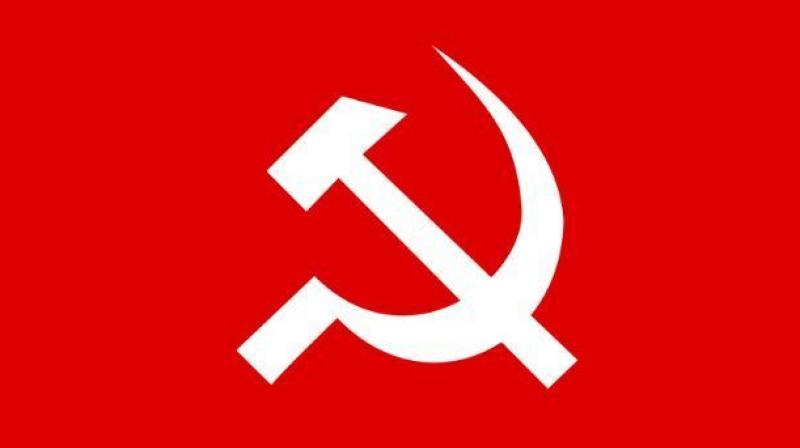Distinctively different: The challenge for CPM

Armed with the charter of historical materialism, committed to delivering a peoples’ democracy, the Communist Party of India (Marxist) seems to have seen the light. A course correction is almost certain that will steer the meandering political line strongly leftwards at the forthcoming party congress in 2018. “There can be no partial fights” — is as close to capturing the essence of the political line that has emerged over a succession of intensely-argued internal consultations within the CPI(M). The agenda that seems to have been approved and finalised is a combination of “fight communalism, corporate capitalism and corruption”, with a strategy of mobilisations and movements that will reflect the renewal of a commitment to wholeheartedly and uncompromisingly engage in an all-out fight. Merely attacking the BJP-RSS’ aggressive deployment of communalism to divide and divert public opinion is not enough; a comprehensive resistance to its policies of neo-liberalism, communalism and corruption is required to meet the challenges of the current crisis.
The BJP-RSS is unlikely to be provoked by such assertions; instead, it will invite jeers from the Sangh Parivar, that has consistently dismissed the CPI(M) as irrelevant but nevertheless a nuisance for the most part, except in Kerala, where the two parties are locked in a mortal combat, and even in tiny Tripura, where denting with the Manik Sarkar-led CPI(M) government is a mission that has been a serious failure till now. The CPI(M) is a hindrance to the BJP-RSS’ ambitions in West Bengal, but not a formidable obstruction.
The emerging consensus to revert to a hard-left position and dump the past, where the CPI(M) operated on the basis of contingency and pragmatism that pushed it to consider the Congress as a partner in the fight against communalism, has been in the making since 2008. The hardening of that position is in response to what Prakash Karat, the former party general secretary, has described as the “new reality”, where the BJP-RSS is the dominant political party and the Congress a shrunk and weak alternative. The incapacity of the Congress to cobble together an alliance, which would be strong or durable or comprehensive enough to challenge the BJP-RSS, is a part of this new reality.
The CPI(M)’s discomfort with the pragmatic politics of inclusive alliances and even a partnership with the Congress is well known. On joining hands with the Congress, the final straw that has probably contributed to the hardening of positions and abandoning contingency as a way of remaining relevant was the unhappy outcome of the alliance in West Bengal to try and defeat Mamata Banerjee, in which the CPI(M) miserably failed. It won even fewer seats than the Congress in 2016, making it the third largest party in the West Bengal Assembly.
The near-certain change in political tactics, of looking at the Congress as a possible leader of an Opposition alliance in which the CPI(M) would have a stake, is the triumph of the idea of the “new reality” propounded by Mr Karat, but effectively voiced by significant numbers of comrades at various levels of the complex hierarchy of the party. As the man who finally put the stamp of approval on this misadventure, party general secretary Sitaram Yechury has been in the line of fire from within the CPI(M). His interpretation of the “new reality” has clearly not gone down well with his comrades, across the country and in West Bengal, where the idea of jointly doing anything with the Congress has met with very mixed reactions.
The break with the old political-tactical line was very evident when the CPI(M)’s politburo and central committee refused to allow Mr Yechury’s re-election as a Rajya Sabha member from West Bengal with the support of the Congress. What is also evident is that the CPI(M) has abandoned its rigidities regarding the Congress as an occasional partner on selective issues or causes both inside and outside Parliament vis-à-vis the BJP government as well as the Sangh Parivar’s communal politics. This “neither pragmatic nor puritanical” position on the Congress is perhaps more comfortable for the CPI(M), where it is in Opposition in Kerala. Its neither one nor the other position has produced issue-based cooperation with the Trinamul Congress in West Bengal as well as inside Parliament.
That the CPI(M) is in search of tactics that meets the needs of its politics in the new reality is now crystal clear. It is finally shedding its inertia and working at building mass mobilisation; the all-India kisan convention and the “Mahapadav” rally in New Delhi are signals of its new activism. There were two different kinds of spaces which the CPI(M) once occupied — the first was as the representative of the voiceless and exploited masses, the so-called “conscience-keeper;” while the second space it created was as the anchor of anti-Congress alliances that later changed into the anchor of an anti-BJP alliance, of which the Congress was the principal party.
In doing so, the CPI(M) backed itself into a corner; while it wanted to operate as the conscience-keeper it failed to do so because it was working on the basis of political compromise to sustain a political platform that was inherently incoherent, and therefore unstable. It had very little going for it as an alternative political agenda. By saying it will not engage in “partial fights” against communalism or neo-liberalism or corruption, the CPI(M) is trying to reclaim its moral authority. But that authority has to be earned, and not reclaimed. The challenge for the CPI(M) after the Hyderabad party congress in April 2018 will be to earn the political capital that it lost when it failed in its experiments with pragmatism.

